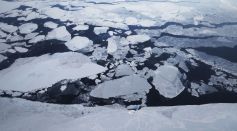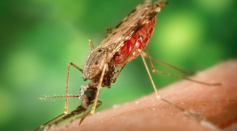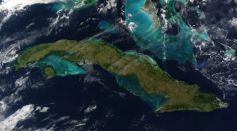Tags: Global Warming

300 Million People Who Live Near Low-Lying River Deltas More Prone to Flooding

Climate Models Reveal Natural Causes of Little Ice Age

Google, Facebook, Microsoft to Go Carbon-Free by 2030

Satellite Imaging Reveals Severe Damage in Two Antarctic Glaciers
Trees Grow Faster With Carbon Dioxide, but They Also Die Earlier

Arctic 'Zombie' Wildfires Release Megatons of Carbon Dioxide

Alaska Salmon Grew Smaller Over the Past 60 Years
Tropical Soils Are Highly Sensitive to Climate Change

West Nile Cases to Increase in L.A. Coastal Area Due to Climate Change

5 Strange Sounds No One Can Still Explain

New Guidelines Can Help Farmers Deal With Climate Change
40-Year Study Features Adaptability of Brittlebush to Warmer Environments

Atmosphere in Antarctica Is Cooling Ten Times Faster Due to Carbon Emissions
An Active Methane Seep in Antarctica May Help Explain Climate Change

Polar Bears Could Be Extinct by 2100, Climate Change to Blame

Fossil Fuels and Cows Are Contributing to More Methane Emissions Than Previously Thought

Phytoplankton Are Causing a 'Significant Regime Shift' in the Arctic Ocean
New Study Sheds Light On 'Cold Blob' That Keeps Getting Colder Despite Global Warming
Why Is the South Pole Warming Faster Than the Rest of the World?, Details Explained in Study
Tiny Polynesian Islands May Not Be Threatened by Climate Change After All: New Study Gives Better Perspective
Most Popular

Microplastics Are Everywhere — How Plastic Pollution Threatens Wildlife, Soil, and Water

Brain Health Aging Guide: Effective Strategies for Cognitive Decline Prevention and Lower Dementia Risk

Mitochondrial Health and Aging: How Cell Energy Drives Modern Anti-Aging Science

How Scientists Use Radio Telescopes to Search for Alien Signals Across the Universe





